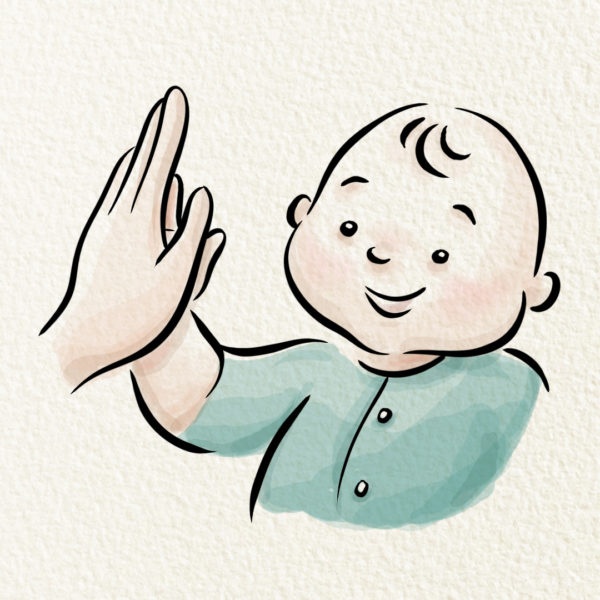Month 9: Building healthy habits
Baby monthly update

Your Child will soon develop many new habits that could stick around for a long time.
As some of these habits may stay with the little one for a long time, it’s important to establish a healthy set of routines as the foundations for building future habits.
How are you and your baby
Your Child is a little explorer and wants to play with everything. The little one may now be able to play with toys using both hands while sitting without support. As cute as it gets, Your Child may now be using various facial expressions, sounds, and gestures to communicate, rather than just crying.
As the little one learns to anticipate daily routines, Your Child becomes more cooperative in dressing and bathing. By being able to predict the sequence of activities and repetition of the same routine, your child slowly begins to form habits. So, you may want to consider creating the right atmosphere for Your Child to develop healthy habits, as a foundation for future skills, such as helping out with chores and getting ready for school.
What are healthy habits
Healthy habits are daily routines that teach a child how to lead a good life. Building healthy habits for babies of this age can start with eating well-balanced diets, knowing self-hygiene, and being physically active.
Helping your child build healthy habits
Creating new habits means outsourcing deliberate thought to muscle memory and the unconscious mind. Most adults who drive a car do so without thinking because they’ve made it a habit — their brains analyzing the traffic and their hands performing the steering work subconsciously in sync. But to arrive at such a point, to create such a habit, takes time and a lot of repetition. So, when teaching a habit to Your Child, make sure you repeat and repeat, and with a good dosage of positive reinforcement.
Inclusion in mealtime: Children learn a lot during mealtime by observing table manners, using cutlery, and handling foods. The experience makes mealtime more meaningful to them. Moreover, serving healthy choices for your baby to choose from and avoiding force-feeding reinforces the positive experience of eating and getting to decide for themselves, which can lead to healthy eating habits later in life.
Modeling: Learning the importance of looking after themselves is an essential foundation in developing self-regulation skills necessary for performing tasks in the toddler years — such as going to the bathroom, taking a shower, getting dressed, and maintaining good hygiene. For now, you can model good habits through daily routines, such as putting the plates away after eating or having Your Child help tidy up after playing with toys.
Physical activity: Having the habits of being physically active early on sets a good foundation for Your Child to be ready to explore the world around and be creative in plays in the toddler years. So, you can make it a habit of taking your child grocery shopping now. While Your Child may just sit in the stroller, assisting you with pointing in the right or wrong direction, soon the little one will be walking next to you carrying your bags.
Why healthy habits matter
Healthy habits are important life skills that young children have to learn to know how to take care of other things later. Knowing how to take care of themselves now teaches children to take responsibility for their actions when they grow up — for example, cleaning after eating, doing their laundry, and accepting the consequences of their actions as adults.
Simple habits today create the foundation for mastering more sophisticated ones, such as discipline, mindfulness, grit, and self-gratification.
In addition, knowing how to care for themselves increases the ability to pay attention to other people and their environment. By learning how to take care of themselves, they learn to take care of others — which could even be you in 50 years from now.
Verified:
Dr. Ketsupa Jirakarn (Mental health specialist) (1 November 2023)



